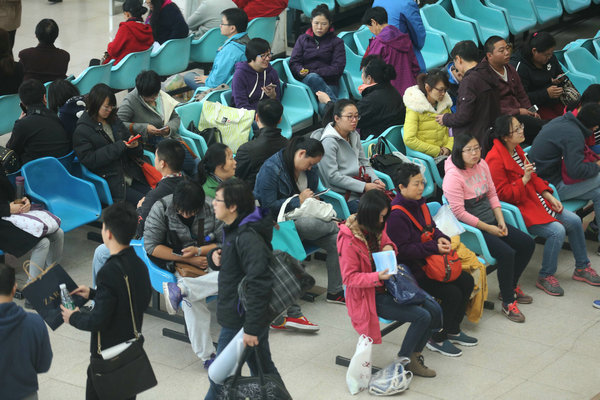 |
|
People wait in the outpatient hall at a Beijing hospital for women and children, the hospital says its patient intake doubled this year. [Tian Baoxi / For China Daily]
|
The policy easing started in late 2013, when couples with one parent as the only child, were told they could apply for permission to have second children in parts of China.
By April, nearly 67,000 "second-child procreation certificates" were issued by the local government in Hunan, accounting for a quarter of 270,000 couples with one parent as the only child in the province, according to Changsha Evening News, a city-based paper.
With 30,000 new babies born as a result, Hunan's birthrate increased by six percent this year, the report said last month.
Local family planning officials weren't available for comments to this newspaper.
There were around 17 million live births in China last year. And, with the nationwide two-child policy in place, the country could expect an additional 3 million babies to be born in the next five years, according to the central government.
When Zheng Mengzhu, China's first IVF baby was born in Peking University No 3 Hospital, her parents who are from Northwest China's Gansu province, paid up to 4,000 yuan for more than a year's stay in Beijing, she says. The expenses were incurred on renting accommodation and paying hospital fees.
Today, the same hospital charges an average of 30,000 yuan for an IVF cycle comprising a few sittings. When the "test-tube baby" program was launched in the 1980s, there were a handful of couples who showed up for it. Since then, the hospital has witnessed more than 10,000 assisted births.


























 Raymond Zhou:
Raymond Zhou: Pauline D Loh:
Pauline D Loh: Hot Pot
Hot Pot Eco China
Eco China China Dream
China Dream China Face
China Face






